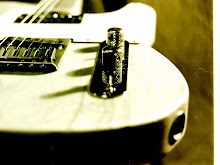
This week marks the 30th anniversary of U.S. release of The Clash’s landmark London Calling album. I can’t claim to have been on the band wagon at the time. I had only a couple of friends who we’re in the vanguard musically and hip to the group back then. My main association with the album in those days was the two songs that got mainstream radio play: “Lost in the Supermarket,” which I pretty much loathed (still not too crazy about the flaccid melody and musicality on that one, though the lyrics and guitar solo aren’t bad), and “Train in Vain, “ which I thought was OK for a radio-friendly pop tune.
It wasn’t until a few years later that it began to dawn on me what a great album it truly is, and, in fact, what a great band The Clash was in that period. Unlike with most bands, my appreciation for The Clash has only grown over the many intervening years. Only The Rolling Stones (in their heyday) were as effective in alchemizing early rock and roll, r & b and reggae influences to create something unique and brilliant of their own.
Many would argue – and I would agree – that with London Calling, The Clash not only hit the high point of their recorded catalog, but also produced one of the best double albums ever. There’s virtually no padding, every song earns its place and plays its role on the record. (OK, maybe there were weak links in “Lover’s Rock” and “The Right Profile,” though any song that name checks Montgomery Clift in the chorus can’t be all bad.)

From its Elvis homage cover to its multifaceted musical content, the band’s third album stands as a unique fulcrum in rock history. It encompasses pop, Brixton reggae, turbocharged rockabilly, Diddley-esque r & b, white-boy funk and politically charged anthems. There’s some humor, too – you can’t help but love the sproingy spring sounds on “Guns of Brixton.”
With hallmark tunes such as “London Calling,” “Brand New Cadillac,” “Revolution Rock,” “Spanish Bombs,” "Death or Glory," the aforementioned “Guns of Brixton” and the unlisted track, “Train in Vain,” the album contains many of the true standouts in the band’s serpentine recording career.
This record more than any other cemented The Clash’s place in rock history. It transcended their punk origins with its nod to musical forefathers, left-leaning politics and multiculturalism. Yet, attitudinally at least, it reaffirmed that they were the thinking man’s punk band. The fact that their best work holds up so well three decades on is testament to that fact.
The “making of” documentary that came as a bonus DVD with the 25th Anniversary Legacy Edition of the CD sheds light on the recording sessions in which eccentric producer Guy Stevens’ approach seems to have been to provoke the band into performing with the grit and cool restraint we hear in the grooves (OK, bytes now). His “production” method included tossing furniture around the studio while the band was attempting to work out song arrangements and record. It leaves one amazed that the band was able to complete any album at all – much less one of the all-time greats – under the circumstances.
“After all this, won’t you give me a smile?” ... indeed.
I wanted to include the “London Calling” video, but it’s not available for embedding, so the above will have to do.
R.I.P., Joe.





No comments:
Post a Comment